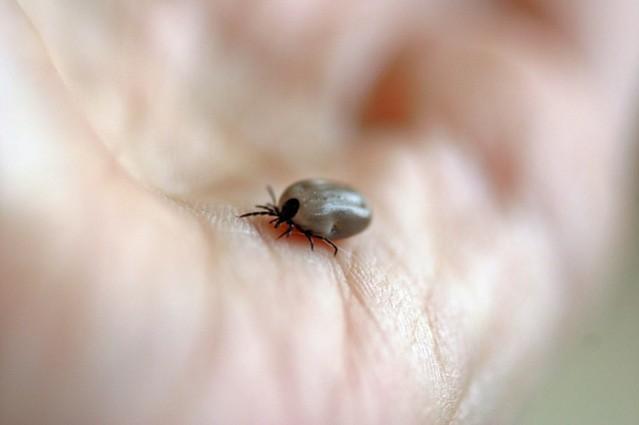
A species of tick, never seen in America before, mysteriously appeared in New Jersey last year. And guess what? They survived the winter and has become a permanent resident.
Last year, a farmer had discovered long-horned tick (Haemaphysalis longicornis) or the bush tick parasitizing a sheep on a Hunterdon County farm in New Jersey, United States.
The New Jersey Department of Agriculture announced Friday: "Ongoing surveillance continued during the winter and on April 17, 2018, the National Veterinary Services Laboratory confirmed the Longhorned tick successfully overwintered in New Jersey and has possibly become established in the state."
Here is all you need to know about the bug:
This tick is usually found in East Asia (Russia, Japan, China, and Korea), New Zealand, parts of Australia, and several Pacific islands (New Caledonia, Fiji, Western Samoa, Tonga, Vanuatu), according to Forbes.
However, no one could explain how the sheep were infected with the tick as it has never gone outside the country and for that matter, not even outside Hunterdon County, reported the website.
The ticks can breed by an asexual reproduction process called parthenogenesis where an embryo from an unfertilized egg cell.
The bug is known to carry diseases, such as spotted fever rickettsioses, however, the ticks found on the sheep's body were tested negative for the disease.
Stay protected
According to nj.com, a chemical wash was adopted to eradicate the insect from the farm. Authorities also removed tall grass, where the bug is known to dwell.
Wildlife and livestock will be kept under strict supervision to ensure the tick doesn't spread, according to the website.
Local, state and federal animal health and wildlife officials, as well as Rutgers University - Center for Vector Biology are working together to eliminate the ticks.
State and federal Department of Agriculture employees will also educate the public about the bug and how to protect their livestock and pets.
People have been asked to contact the state veterinarian if they see any unusual ticks on their livestock. If the ticks are spotted in wildlife, New Jersey Division of Fish and Wildlife, Bureau of Wildlife Management or the Office of Fish and Wildlife Health and Forensics should be immediately informed.

















